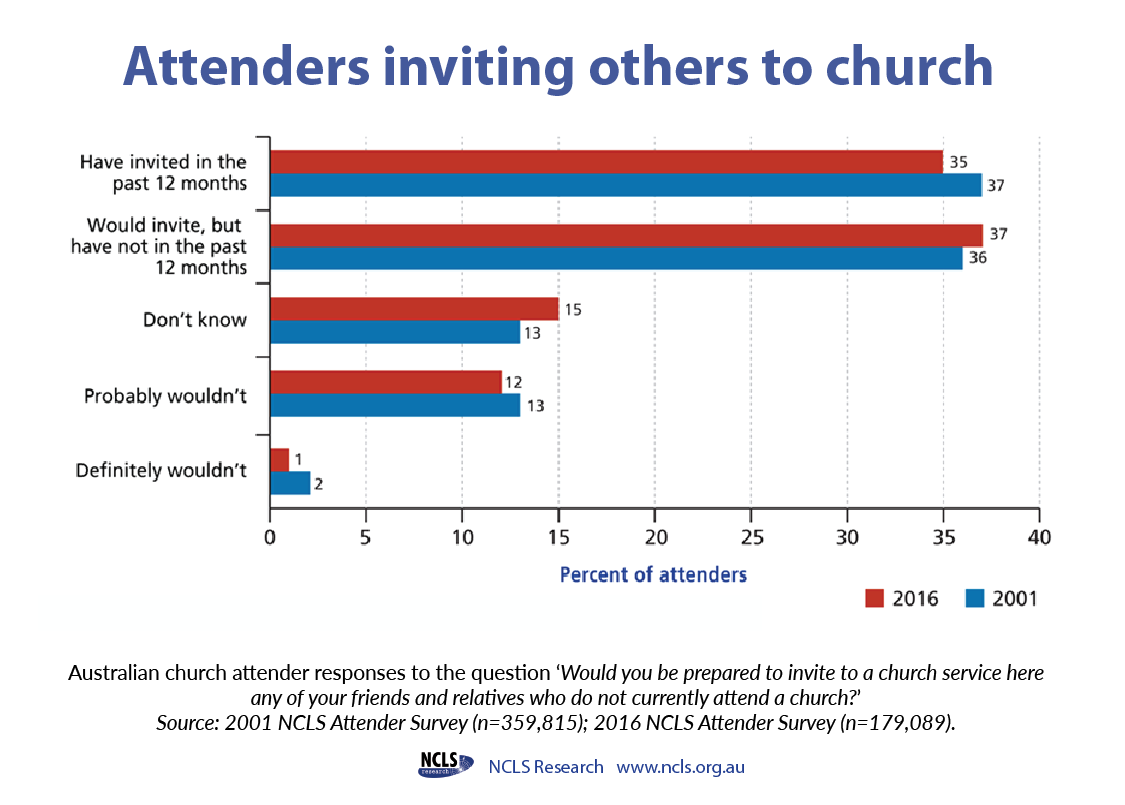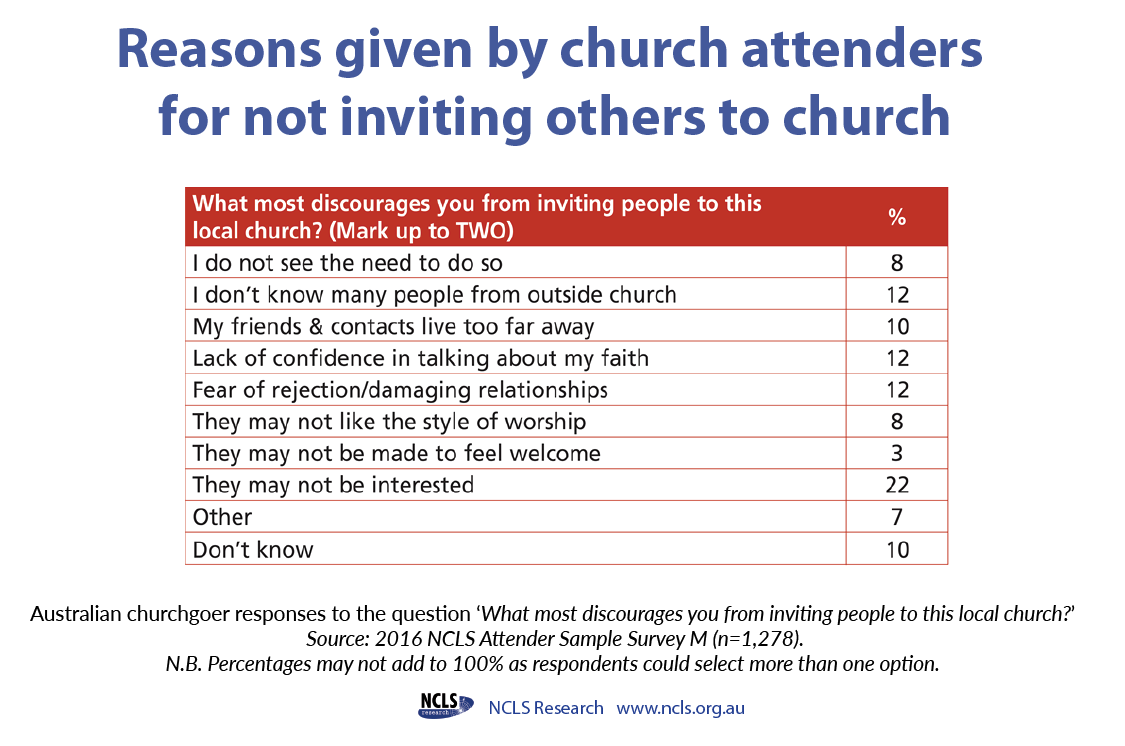Being invited by friends or relatives is a very common way in which people join religious groups.
However the way churches are practising their worship and faith activities is very different at the moment in 2020, with social distancing measures in place due to the COVID-19 pandemic.
It's in this circumstance that we offer our research findings into inviting others to church. Whether those church activities currently look like an online streaming of a worship service, a chat group, or a digital music presentation, we believe these research findings remain relevant.
NCLS researchers have found that newcomers without a church background report that the most influential factors in their decision to start attending a new church were knowing people who already attended there or being invited by someone.
A national survey of church attenders revealed that Australian churchgoers are involved in outreach to varying degrees. For some, this involves an active engagement, taking part in the outreach activities of their church or initiating discussion at home, work or on social occasions. For others it is more about being prepared to discuss their faith if the opportunity happens to arise or in how they live their lives before others.
In the 2016 NCLS, church attenders were asked ‘Would you be prepared to invite to a church service here any of your friends and relatives who do not currently attend a church?’. Some 72% of Australian church attenders were open to inviting someone, with 35% having invited someone in the last 12 months and another 37% being willing to invite someone but had not. In contrast, 13% of church attenders probably or definitely would not invite someone. A further 15% said they did not know if they would be prepared to invite someone.

‘They may not be interested’
Why do only a minority of church attenders invite others? The most common reason church attenders gave for what discouraged them from inviting others was ‘Those I could invite may not be interested’, selected by 22% of respondents. Some other less common reasons were to do with a lack of confidence (12%) or a fear of rejection or damaging relationships (12%). Some churchgoers simply acknowledge that they do not know many people from outside church (12%).

The picture that emerges from church attenders is that while, in general, they agree they have very positive personal experiences of church participation, there are barriers which hold them back from sharing their faith experiences with others – even close friends and family. Yet, when we listen to a wider group of ordinary Australians, we find reasons for greater confidence.
See the related article, from the 2019 Australian Community Survey titled, Australians provide five clues about how churchgoers can connect .



